Worth 15% of your course grade
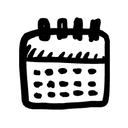 Important Dates
Important Dates
- March 14: Informal Proposal due by 11:59 PM
- March 21: Grace period for the proposal ends at 11:59 PM
- March 22: Rough Drafts for Peer Feedback, due by 11:59 PM
- March 24: Peer Feedback due by 11:59 PM
- March 28: Project 3 due by 11:59 PM
- April 4: Grace period ends at 11:59 PM
NOTE: We’re using the term "Job Application Materials" to cover a wide range of things that go beyond the traditional resume and cover letter to include any materials you might use to retain your job, work toward promotion, or network with colleagues.
Goals
The Project Assignment
 You will explore the kinds of documents you need in order
You will explore the kinds of documents you need in order
- to apply for and maintain a job, an internship, or a scholarship,
- to maintain your career and demonstrate your work,
- to work toward a promotion or otherwise advance your career,
- to network with employees in your new job.
You’ll propose what kind(s) of job application materials you want to write (anything goes—a traditional resume, a personal website, a LinkedIn profile, a GitHub repository, etc.). Based on your findings, you will create the job application materials that you need, whatever they may be.
Step-by-Step Details
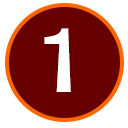 Step 1: Conduct your research. You probably know a bit about what you will need to gather for a job application after you graduate. For Project 3, you will build on that knowledge by researching what someone in your field needs to develop to get, keep, and advance in a job professionally and by building a network of colleagues.
Step 1: Conduct your research. You probably know a bit about what you will need to gather for a job application after you graduate. For Project 3, you will build on that knowledge by researching what someone in your field needs to develop to get, keep, and advance in a job professionally and by building a network of colleagues.
Research the expectations for your field using the information in the textbook, your experience from internships and other jobs in your field, and the details from the Virginia Tech Career Planning Guide (available online or in print from Career Services on the Blacksburg Campus).
You can also rely on discussions with colleagues where you have worked, advice from faculty in your major, and information from other students and alumni. Review position listings for your field as well in order to see the kinds of material companies ask for. Look at the kinds of materials that are specifically requested as well as the kinds of resources companies often consult.
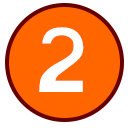 Step 2: Choose the focus for your project. Based on your research, you should choose a broad focus for your job application materials. Some (not all) possible options are the following:
Step 2: Choose the focus for your project. Based on your research, you should choose a broad focus for your job application materials. Some (not all) possible options are the following:
- Find a job posting you want to apply for and write the materials it requires.
- Find a internship posting you want to apply for and write the materials it requires.
- Find a scholarship you want to apply for and write the materials it requires.
- Create a personal website that provides a portfolio of your work and basic biography or resume.
- Clean up your online presence online and establish profiles in places that will help you network or get a job (like Academia.edu, LinkedIn or GitHub).
- Update your LinkedIn profile to network with professionals where you will be working in the future.
Additional examples are also available. I encourage you to choose whatever project is most helpful to you. Take advantage of this assignment to get something done you’ve been putting off or to get ahead on (or add to) your job search or career networking.
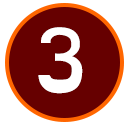 Step 3: Propose your project. Use the proposal instructions and the information in Markel on writing proposals to know what information to include and how to submit your proposal. Your proposal is due March 14 by 11:59 PM, but you can submit your proposal earlier.
Step 3: Propose your project. Use the proposal instructions and the information in Markel on writing proposals to know what information to include and how to submit your proposal. Your proposal is due March 14 by 11:59 PM, but you can submit your proposal earlier.
I have never had to turn a proposal down, but I have asked for changes occasionally. If you are planning on a unique or unusual project, try to submit your proposal as soon as possible so that you can begin working on the materials with confidence that they will work for Project 3.
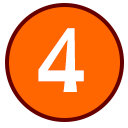 Step 4: Complete the work you have proposed for Project 3. Create whatever job application materials you have proposed, working to meet whatever grade goals you have set for yourself.
Step 4: Complete the work you have proposed for Project 3. Create whatever job application materials you have proposed, working to meet whatever grade goals you have set for yourself.
You will submit your draft(s) for peer review by 11:59 PM on Tuesday, March 22. If you are working on another site, you will need to set the page so that we can all read it and share the link to that site. If you are working on LinkedIn, log into Lynda.com with your Virginia Tech PID and password, and watch the video on Adjusting Your Privacy Settings.
Use the advice you receive from your readers to revise before the due date, which is March 28.
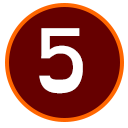 Step 5: Submit your work in Canvas.
Step 5: Submit your work in Canvas.
When you are finished with the project, you will upload your file(s) and/or links in the Assignment tool on Canvas. Details on how to submit your work will be included in the post for the week of March 22.
You will use the Comment section for reflection on your project. In this section you will tell me the following:
- the grade that you have aimed for.
- how well you reached your goals.
- any other information I need to know to understand the work you did on your project.
Be sure that you follow the instructions, include the relevant information, and proofread your memo. If you skip adding the Comment, you lower your grade on the project. Remember that there are no rewrites or revisions after work is graded.


